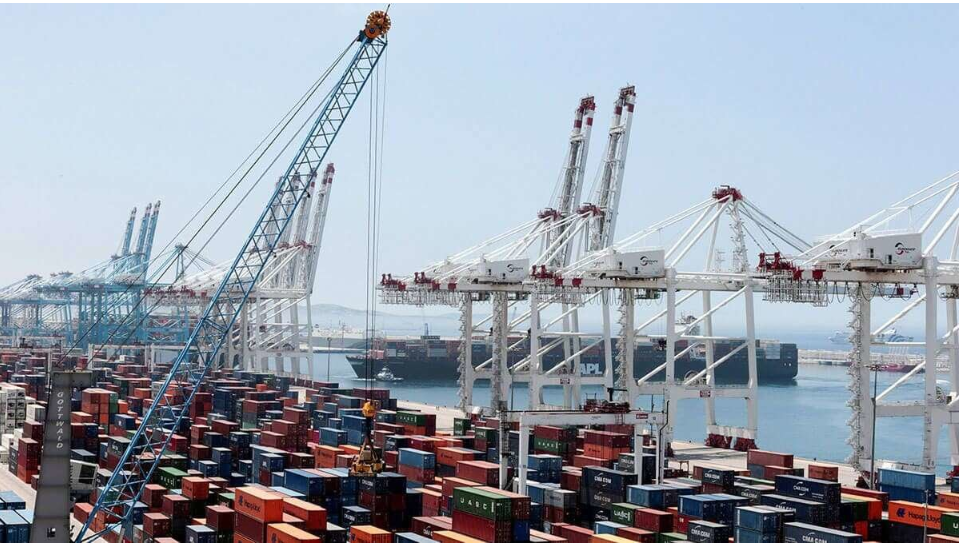
Morocco is set to significantly enhance its shipbuilding industry by 2024, positioning itself as a key player in the maritime sector. This strategic move is part of the country’s broader plan to strengthen its economy, diversify its industrial base, and take advantage of its prime geographic location on key global trade routes. The initiative is expected to increase Morocco’s capabilities in shipbuilding and ship repair, contributing to job creation and economic growth.
The Moroccan government, in partnership with local and international stakeholders, has been working on a comprehensive plan to expand the country’s shipbuilding sector. The goal is to not only serve the domestic market but also cater to international demand for new ships and the maintenance of existing fleets. The expansion of shipyards in key coastal cities like Casablanca, Agadir, and Tangier is central to this effort.
With Morocco’s economy heavily reliant on trade, shipping, and its bustling ports along the Mediterranean and Atlantic coasts, the need for a robust maritime infrastructure has never been greater. By enhancing its shipbuilding capabilities, Morocco aims to reduce its reliance on foreign-built vessels while simultaneously providing shipbuilding services to neighboring African countries and beyond.
To support this ambitious plan, the Moroccan government has introduced a series of incentives aimed at attracting both domestic and foreign investment. Tax breaks, subsidies, and reduced tariffs on shipbuilding materials are just some of the measures in place to encourage growth in the sector. In addition, partnerships with international shipbuilding giants are being explored to bring in advanced technologies and expertise.
The government has also pledged substantial investment in technical and vocational training programs to develop a skilled workforce for the industry. These programs will focus on training Moroccan engineers, welders, and other shipbuilding professionals to meet the needs of an expanding shipyard sector.
Morocco’s geographic advantage makes it a natural hub for maritime trade and shipbuilding in the region. With its proximity to Europe, West Africa, and the Middle East, Morocco is well-positioned to serve as a key player in the shipping industry. The port of Tanger-Med, one of the largest and most modern in Africa, already plays a critical role in international shipping, and the development of the shipbuilding industry will further consolidate Morocco’s role as a regional maritime leader.
The shipbuilding sector’s growth is also expected to complement Morocco’s emerging blue economy, which focuses on sustainable development of maritime resources, including fisheries, renewable ocean energy, and marine tourism.
While the prospects for Morocco’s shipbuilding industry are promising, there are challenges to overcome. Competing with established global shipbuilders such as those in South Korea, China, and Europe will require Morocco to carve out niche markets or offer competitive advantages in terms of cost, quality, and turnaround time.
Additionally, ensuring that Morocco’s shipbuilding industry meets international environmental standards is crucial, especially as the global shipping industry moves towards greener and more energy-efficient vessels. Morocco has already shown leadership in renewable energy with its solar and wind projects, and similar principles are expected to guide its shipbuilding sector.

The expansion of shipbuilding activities is expected to deliver significant economic benefits to Morocco. It is projected to create thousands of direct and indirect jobs, especially in coastal cities where shipyards are located. These jobs will range from highly skilled engineering positions to entry-level roles in construction, manufacturing, and logistics.
The growth in shipbuilding is also likely to have positive spillover effects on related industries such as steel production, electronics, and transportation. Furthermore, increased shipbuilding capacity will help boost exports, strengthen Morocco’s trade balance, and enhance its competitiveness on the global stage.
As Morocco ramps up its shipbuilding efforts by 2024, the country is set to capitalize on its strategic location and expanding industrial base to play a larger role in global maritime activities. The shipbuilding initiative is part of a broader vision for Morocco’s economic future, with a focus on industrial diversification, job creation, and sustainable development.
By building a modern and competitive shipbuilding industry, Morocco aims to not only meet domestic demands but also position itself as a key shipbuilding hub in Africa and beyond, contributing to the region’s economic growth and integration into global supply chains.

